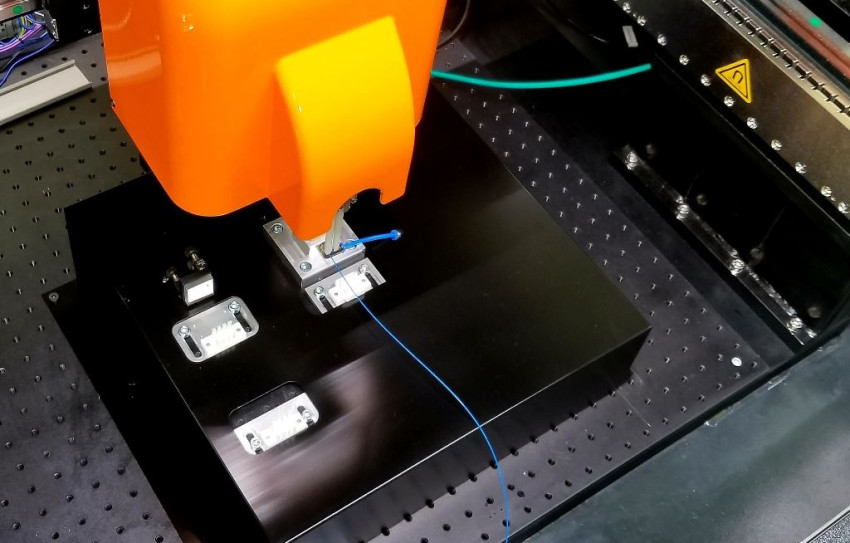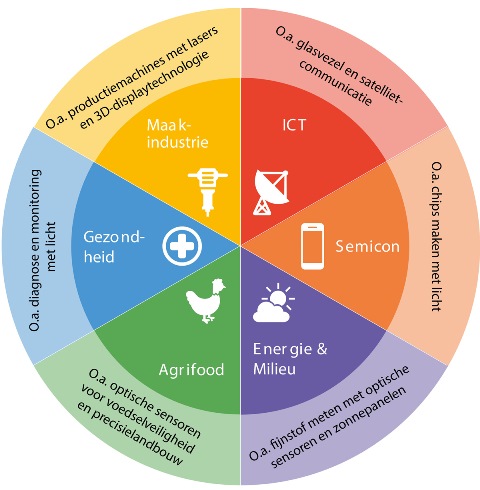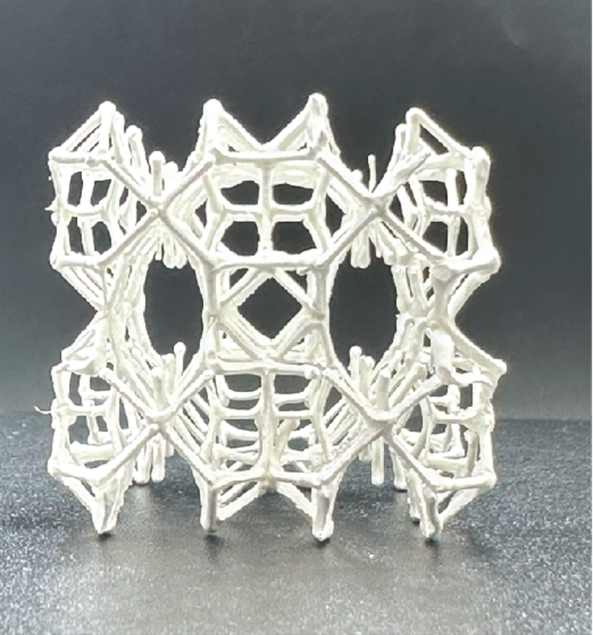
Dutch photonics sector gets a boost
The Netherlands wants its burgeoning photonics sector to grow into a flourishing, large-scale industrial sector. To achieve this, Photon Delta and others have drawn up the Dutch Integrated Photonics Plan, which was presented last Friday to State Secretary Mona Keijzer of Economic Affairs and Climate.
Photonics is the counterpart of electronics: instead of electrons, photons or light particles transmit information from A to B. The photonic or optical chips that manipulate this light can offer solutions in situations where electronics has reached its technological limit.
The Netherlands already has a number of concrete projects running in this area: Eindhoven company EFFECT Photonics is looking at creating a fast connection between fibre optics and electronics, for example, while Technobis in Alkmaar is developing photonics applications that measure the deformation of large structures, such as airplane wings. Another company working with photonics is LioniX in Enschede, which is developing direction-sensitive communication systems.
National plan
Photonics researchers and companies have united under the umbrella organisation Photon Delta, which is aiming to give these kinds of projects a major boost with the Dutch Integrated Photonics Plan (Dutch). The investment required is 250 million euros. Of this amount, €150 million has already been promised by the Dutch government, regional authorities (Noord-Brabant, Overijssel and Gelderland), and the knowledge institutions Netherlands Organisation for Applied Scientific Research (TNO, Dutch), the University of Twente, Radboud University Nijmegen, Eindhoven University of Technology, and the Netherlands Organisation for Scientific Research (NWO). The rest of the cash will have to come from companies and European grants.
Rapid growth
 The market for photonic chips is expected to grow by 35% each year. The knowledge institutions in the Netherlands have considerable expertise in photonics, which is the road to promising start-ups. However, if the country really wants to reap the benefits of the anticipated rapid growth in the photonics sector, more is needed.
The market for photonic chips is expected to grow by 35% each year. The knowledge institutions in the Netherlands have considerable expertise in photonics, which is the road to promising start-ups. However, if the country really wants to reap the benefits of the anticipated rapid growth in the photonics sector, more is needed.
'We’re making photonic chips on a small scale in the Netherlands, but we’re lacking the entire supply chain for responding to a request from a company the size of Google or Microsoft to produce large numbers of photonic chips for data centres,' says René Penning de Vries, the face of integrated photonics in the Netherlands. 'Photonic chips don’t just have to be produced, they also have to be packaged, and the production process still has to be tested and scaled. We’re not there yet.'
High quality standards
The sector will therefore have to professionalise in different domains. 'The market for photonic chips is mainly business-to-business (B2B). In addition, we’ll have to implement stringent international quality standards, such as delivery reliability. Companies like Google or Alibaba also expect you to develop better, next-generations of a photonic chip rapidly. The faster you repeat such a process, the faster the learning ability of that customer.'
In the Netherlands, there has been a technology push up to this point – what can be done with photonics? 'We have to shift to market pull – what does the industry need? That will define the technology we then develop.'
If you found this article interesting, subscribe for free to our weekly newsletter!
Opening photo: This machine, which was presented last month, attaches glass fibres to an optical chip with great precision. Source: Fraunhofer Project Center






